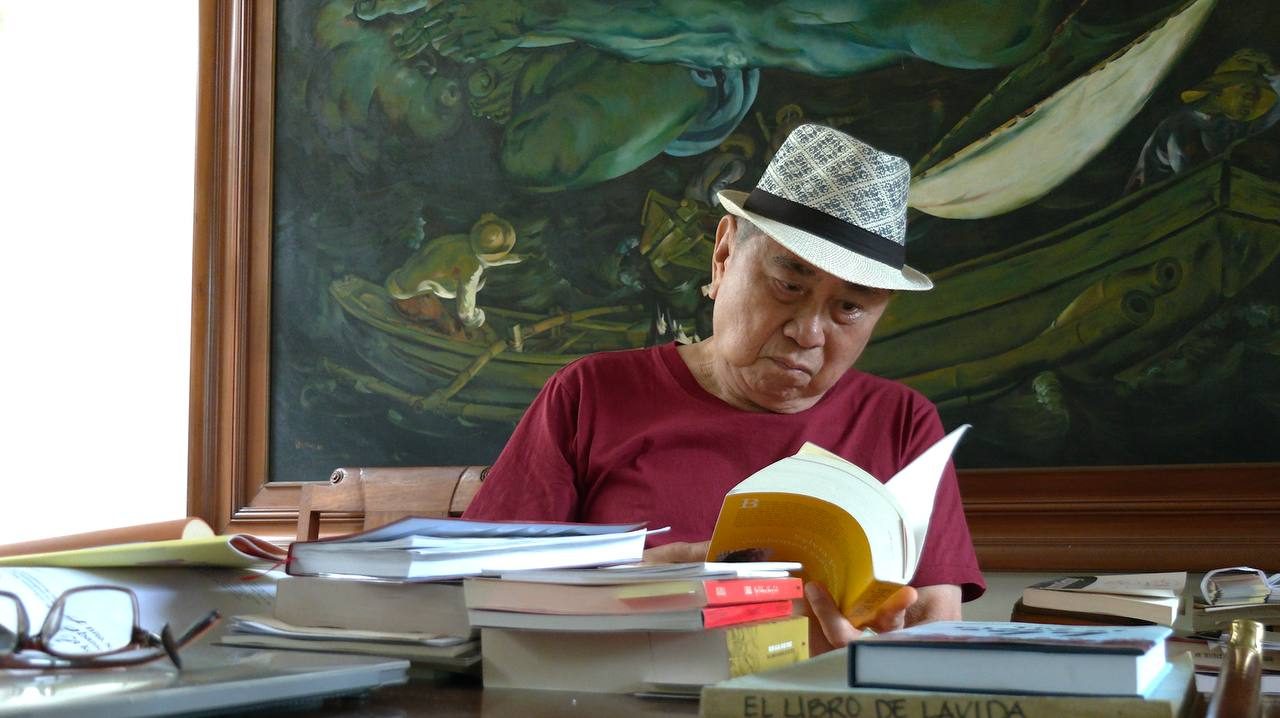Physical Address
304 North Cardinal St.
Dorchester Center, MA 02124
Physical Address
304 North Cardinal St.
Dorchester Center, MA 02124

This is AI generated summarization, which may have errors. For context, always refer to the full article.
On Independence Day, Rappler talks to National Artist for Literature Rio Alma about love for nation, language, and identity
MANILA, Philippines – A faded Philippine flag hangs outside the house of National Artist for Literature Virgilio Almario.
He was the only one in their quiet village in Pasong Tamo, Quezon City, who made such statement until one morning walking session when Almario brought up the idea of all homeowners flying the Philippine flag in their front yard or hanging it on their doors.
This was brought about by the political scuffles in Congress concerning Vice President Sara Duterte’s impeachment. Instead of accosting senators, they could try teaching younger people to love their nation.
“Kung ang ating mga kasalukuyang generation kulang sa pag-ibig sa bayan, kailangan humanap tayo ng mga paraan para mas tumindi ‘yung pag-ibig sa bayan ng next generation natin,” Almario said.
(If this generation lacks love for country, then we must find ways to stoke this love for the next generation.)

And loving their nation means knowing the symbols — like the Philippine flag — and the stories they carry.
A man who knows well the power of symbols was Emilio Aguinaldo, the first president, said Almario. Aguinaldo, the poet recalled, advocated for the creation of the flag and the national anthem as assertions against Spanish colonial rule.
A street lined with Philippine flags, Almario hoped, will prompt questions from the children who see them. Why are there three stars? Why are those the colors chosen? The answers lie in Philippine history.
Almario was conferred the title of National Artist for Literature in 2003. He wrote poetry and literary criticism in Filipino, edited and contributed to anthologies.
His intimate knowledge and use of the Filipino language continues to affirm his belief that there is no fully knowing the Filipino identity in a foreign language. And it is in this lack of awareness that the Philippines becomes lost, a nation forgetful of its past.
“Paano mo makikita ang identity mo through the foreign language?” Almario said. (How can you see your identity through the foreign language?)
“Na-fi-filter ‘yung identity mo, nakukuha lang ‘yung pwedeng kunin ng language,” he added. “’Pag tinranslate ‘yung identity mo, nawawala na ‘yung tunay mong katangian.”
(Your identity gets filtered, the language only catches what it can. If you translate your identity, your true character gets lost.)
Renowned writers who came before Almario primarily wrote in English — Jose Garcia Villa, Angela Manalang Gloria, Paz Marquez Benitez, Francisco Arcellana.
Writers should have expansive knowledge of history, said the poet. And he would add later on, in his house, that that’s what made Nick Joaquin great. Outside of fiction, Joaquin has written about the history of Manila, critiqued Filipino culture, its “heritage of smallness.”
About 20 houses in their village already have flags outside, according to Almario. Checking the flags is what currently occupies him when he does his morning walks. He said he hopes this catches on, in different barangays, cities, and provinces. A whole nation displaying its identity. – Rappler.com